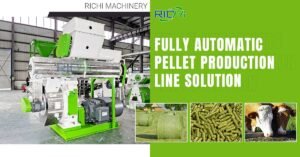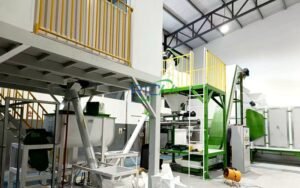
Pasture intake plays a significant role in the nutritional profile of meat from free-range broilers. The diet of broilers, especially when supplemented with access to pasture, can influence the fatty acid composition and the content of bioactive compounds such as cholesterol, tocopherols, and tocotrienols. Understanding these effects is crucial for optimizing meat quality and enhancing its health benefits.
Fatty Acid Composition
- Polyunsaturated Fatty Acids (PUFAs): Pasture intake generally increases the levels of polyunsaturated fatty acids in broiler meat. This includes essential fatty acids like omega-3 (α-linolenic acid) and omega-6 (linoleic acid) fatty acids, which are beneficial for cardiovascular health.
- Monounsaturated Fatty Acids (MUFAs): Free-range broilers with access to pasture tend to have higher levels of monounsaturated fatty acids, particularly oleic acid. MUFAs are known for their positive effects on heart health and cholesterol levels.
- Saturated Fatty Acids (SFAs): The intake of pasture can lead to a reduction in the saturated fatty acid content in broiler meat. Lower SFA levels are desirable as they are associated with a reduced risk of cardiovascular diseases.

Cholesterol Content
Cholesterol content in broiler meat is an important nutritional parameter. Studies have shown that pasture intake can result in lower cholesterol levels in the meat of free-range broilers. This reduction is attributed to the higher intake of PUFAs from the pasture, which can modulate lipid metabolism and reduce cholesterol synthesis.
Tocopherols and Tocotrienols Content
- Tocopherols (Vitamin E): Pasture intake increases the concentration of tocopherols in broiler meat. Tocopherols are powerful antioxidants that protect cells from oxidative damage and support immune function.
- Tocotrienols: Like tocopherols, tocotrienols are also forms of Vitamin E with potent antioxidant properties. Pasture-fed broilers tend to have higher levels of tocotrienols, contributing to the overall antioxidant capacity of the meat.
Health Benefits
- Improved Nutritional Profile: The enhanced fatty acid composition, with higher levels of PUFAs and MUFAs and lower levels of SFAs, improves the nutritional quality of broiler meat. This makes it a healthier choice for consumers looking to reduce their risk of cardiovascular diseases.
- Antioxidant Properties: Increased levels of tocopherols and tocotrienols enhance the meat’s antioxidant properties, providing additional health benefits by protecting against oxidative stress and inflammation.
- Lower Cholesterol: The reduction in cholesterol content in pasture-fed broiler meat makes it a heart-healthy option, suitable for individuals aiming to manage their cholesterol levels.
Conclusion
Pasture intake has a profound impact on the fatty acid composition and the content of cholesterol, tocopherols, and tocotrienols in meat from free-range broilers. The inclusion of pasture in the diet of broilers enhances the nutritional profile of the meat by increasing beneficial fatty acids and antioxidant compounds while reducing cholesterol levels. These changes contribute to the overall health benefits of consuming free-range broiler meat, making it a superior choice for health-conscious consumers.






